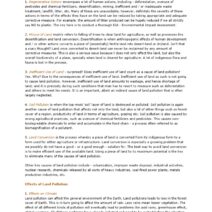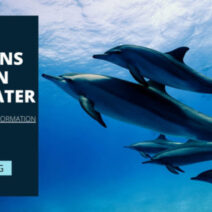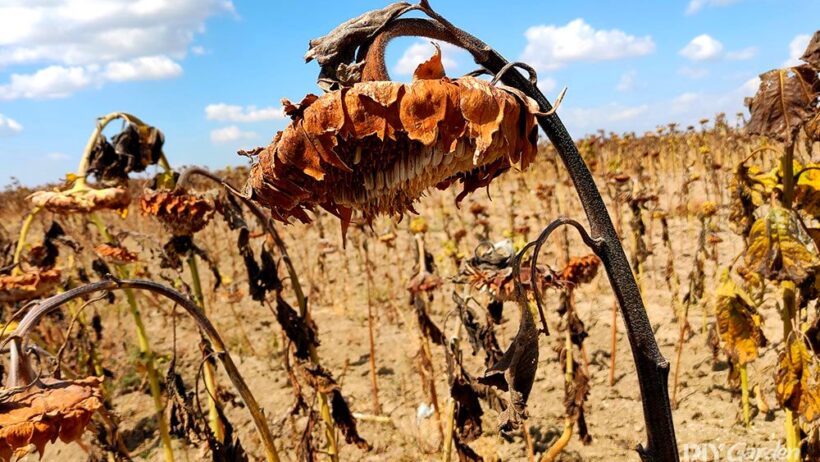As we navigate the complexities of modern life, the specter of global warming looms ever larger, heralding profound consequences that affect every facet of human existence. The ramifications extend beyond the realms of flora and fauna, intruding deeply into the fabric of human society. The degradation of our climate catalyzes a cascade of challenges that threaten our health, economies, and communal stability. Therefore, it becomes crucial to illuminate these impacts in a manner that emphasizes their global significance.
First and foremost, the health implications of global warming are alarming and diverse. Rising temperatures pave the way for increased incidences of heat-related illnesses. Vulnerable populations—such as the elderly, children, and those with pre-existing conditions—are particularly at risk. Additionally, erratic weather patterns engender conditions conducive to the proliferation of vector-borne diseases, such as malaria and dengue fever. Mosquitoes and other vectors thrive in warmer climates, thus expanding their reach into previously unaffected regions. This can overwhelm public health systems and strain resources, creating a cycle of mounting health crises.
Food security is another critical dimension where global warming asserts its influence. Agriculture depends on specific climate conditions to flourish, and as temperatures rise and precipitation patterns shift, crop yields are jeopardized. Prolonged droughts and excessive rainfall can lead to significant losses in productivity, destabilizing food supply chains. In tandem, increased atmospheric carbon dioxide can actually reduce the nutritional value of staple crops. This poses a dire threat to populations dependent on agriculture for sustenance, particularly in developing nations where adaptive capacity is limited.
The socio-economic consequences of climate change are equally troubling. Disruptions to agricultural outputs directly impact economies reliant on farming. As farmers struggle with unyielding conditions, ripple effects can destabilize local and national economies. Job losses in agriculture can lead to increased poverty rates, which exacerbate social inequalities. Furthermore, as traditional livelihoods are undermined, rural populations may migrate en masse to urban centers in search of opportunity. This unsustainable urbanization places additional pressure on infrastructure and resources in cities that are often ill-equipped to manage such influxes. Over time, this can foster urban poverty and increase susceptibility to social unrest.
In addition to food security and economic stability, global warming imposes significant strains on water resources. The melting of glaciers—once reliable freshwater sources—combined with erratic precipitation, leads to water shortages increasingly experienced by millions. Regions such as South Asia and parts of sub-Saharan Africa are at particularly high risk. Water scarcity not only exacerbates health issues but can also incite conflict over dwindling resources. Such disputes are inevitably tied to social tensions, potentially escalating into larger scale violence.
Moreover, the rise in sea levels poses an existential threat to coastal communities worldwide. Flooding not only endangers lives but also engulfs historically significant locales. As cities like Venice and New Orleans face chronic inundation, the question of displacement becomes paramount. Those forced to vacate their homes face myriad challenges, including loss of community, disruption of economic stability, and the trauma associated with relocation. Climate refugees are emerging as a new demographic, as millions abandon their homes in search of safety and stability, often facing additional barriers in new locales.
Another stark reality is the psychological impact of climate change. As communities grapple with extreme weather events—hurricanes, wildfires, droughts—collective trauma can ensue. Mental health issues such as anxiety, depression, and post-traumatic stress disorder are becoming more pervasive among affected populations. The psychological toll exacerbates existing challenges in communities disproportionately affected by climate-related disasters, rendering them less able to recover and adapt. Schools, businesses, and healthcare services find their capacities stretched thin, unable to meet burgeoning demands.
As we discuss the human cost of global warming, it is imperative to acknowledge the intersectionality of these issues. Marginalized populations—often those contributing least to climate change—are disproportionately affected. Access to resources such as education, healthcare, and housing remains inequitable, which exacerbates vulnerabilities. Engaging in a just transition necessitates recognizing these disparities, promoting equity in climate mitigation and adaptation strategies.
Climate change is an inherently global issue, necessitating collective action and international cooperation. The power lies in collaborative efforts to implement sustainable practices, reduce emissions, and promote resilience. Renewable energy sources, such as solar and wind, must be embraced while transitioning from fossil fuels. Nations must commit to ambitious targets while supporting less developed countries in their adaptation efforts. Furthermore, conservation of biodiversity is critical, as healthy ecosystems bolster resilience against climate impacts.
In summary, the multifaceted impact of global warming extends far beyond environmental degradation. The human cost is tangible, affecting our health, economic stability, and social fabric. Acknowledging the interdependence of these challenges paves the way for a holistic approach to combatting climate change. As we stand poised at this critical juncture, it is incumbent upon us to rally for systemic change, to foster sustainable practices, and to advocate for marginalized communities adversely affected by these irrevocable changes. Through concerted action, we can mitigate these consequences and forge a path toward a more equitable and sustainable future for all.







